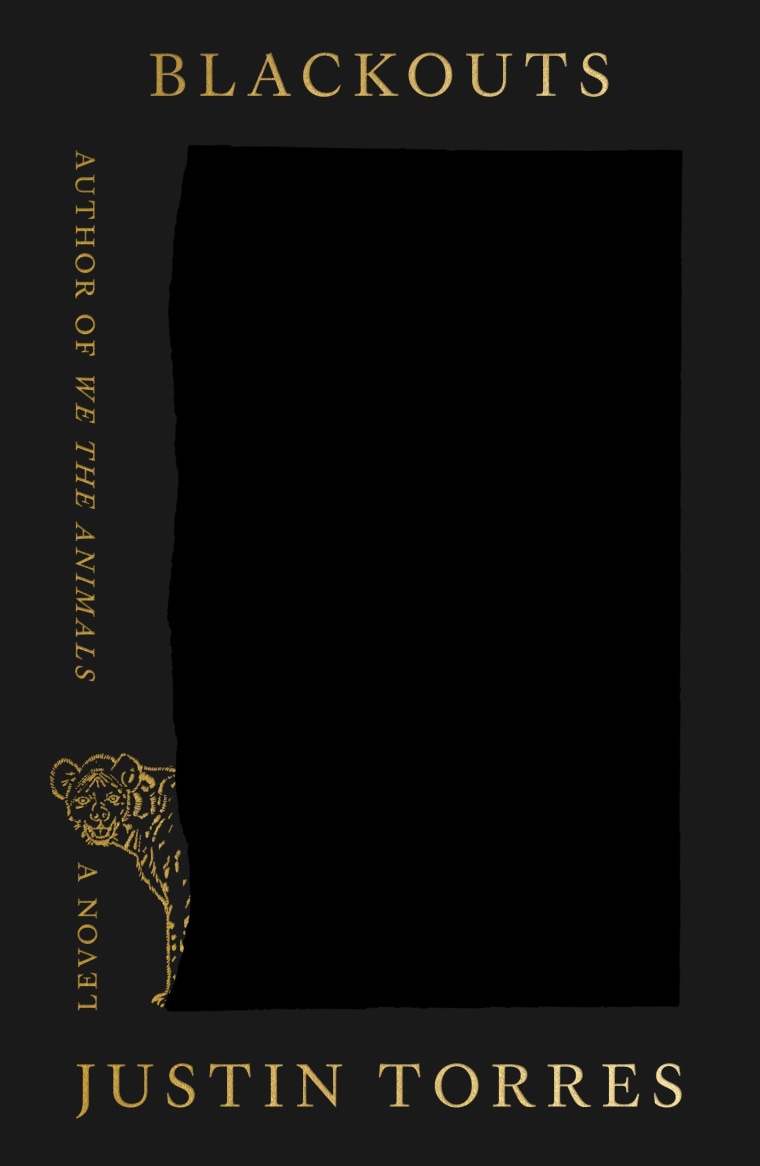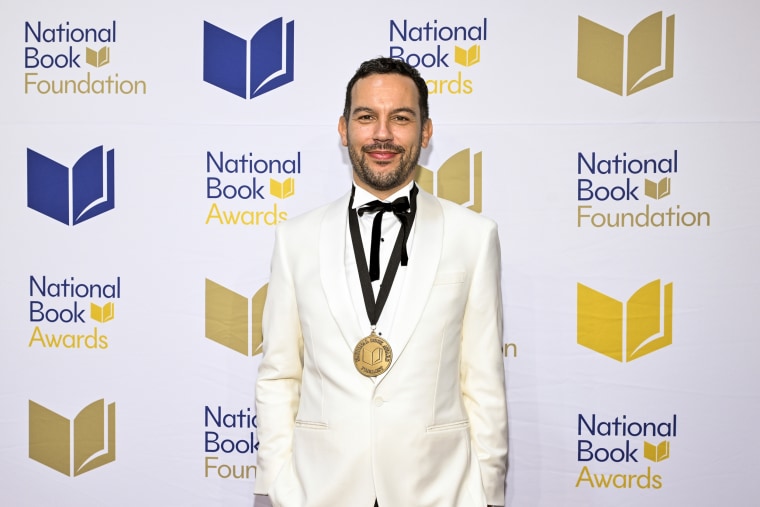Justin Torres’ queer novel “Blackouts” won the National Book Award for fiction Wednesday night.
“Blackouts” — his second novel after his award-winning “We the Animals” — combines fictional storytelling with hidden queer history. The book follows a dying older man, Juan Gay, as he discusses the erasure and distortion of LGBTQ history with his young friend, whom he affectionately refers to as “Nene.”
Central to the deathbed conversation between the two men is the real-life 1940s publication “Sex Variants: A Study of Homosexual Patterns” and the research’s “devastating history.” According to the description of “Blackouts” provided by the book’s publisher, the Macmillan imprint Farrar, Straus and Giroux, “Sex Deviants” was based on the work of queer researcher Jan Gay, but her groundbreaking research was “co-opted” and “her name buried.”

This year’s other National Book Award fiction finalists were “Chain-Gang All-Stars” by Nana Kwame Adjei-Brenyah, “Temple Folk” by Aaliyah Bilal, “This Other Eden” by Paul Harding and “The End of Drum-Time” by Hanna Pylväinen.
In addition to “Blackouts,” the evening’s other winners were Ned Blackhawk’s “The Rediscovery of America: Native Peoples and the Unmaking of U.S. History" for nonfiction, Craig Santos Perez’s “from unincorporated territory [åmot]“ for poetry, Stênio Gardel’s “The Words That Remain” for translated literature and Dan Santat’s “A First Time for Everything” for young people’s literature.
During his brief acceptance speech at the 74th National Book Awards ceremony, Torres thanked his partner, literary scholar David Russell, for “putting up with my excessive lamentations about this book” and also his “queer family.”
He then invited fellow authors and nominees to the stage to share a joint statement regarding the Israel-Hamas war.
The statement, read by Bilal, condemned the “ongoing bombardment of Gaza” and called for a humanitarian cease-fire to provide aid to Palestinian civilians, particularly children.
“We oppose antisemitism and anti-Palestinian sentiments and Islamophobia equally, accepting the human dignity of all parties, knowing that further bloodshed does nothing to secure lasting peace in the region,” Bilal said as 19 other authors and nominees stood behind her on the stage.
A standing ovation followed her remarks.
The joint statement did, however, result in one of the event’s sponsors, Zibby Media, withdrawing its support ahead of the event because of concerns that the statement could be antisemitic and anti-Israel, The Associated Press reported.
